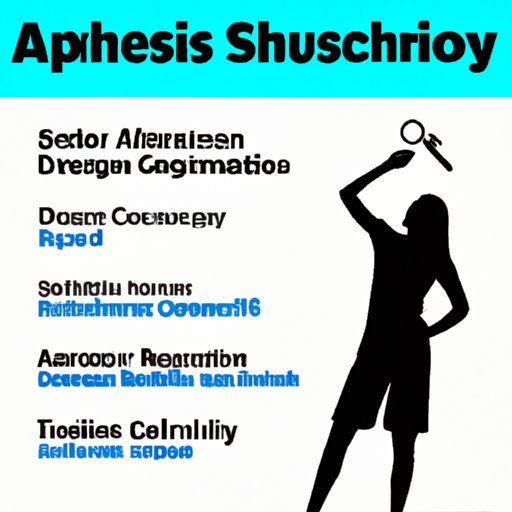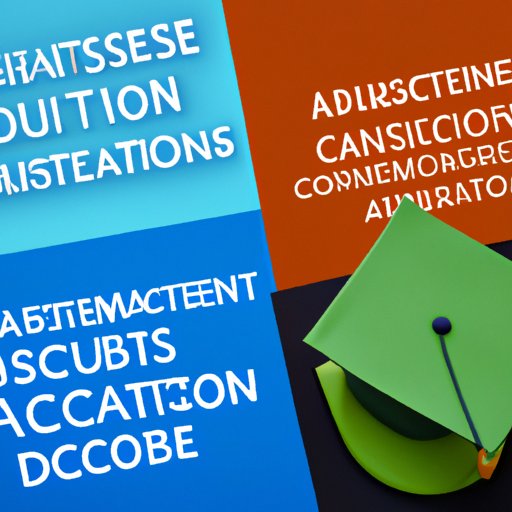Introduction
An Associate Degree in Science is a two-year program that provides students with the foundation they need to pursue a career or further education in science-related fields. It covers a wide range of topics including mathematics, physics, biology, chemistry, and computer science. Earning an Associate Degree in Science can provide students with the skills and knowledge they need to enter into professional positions or transfer credits to a four-year college or university.

What You Can Do With an Associate Degree in Science
The most common path for those who earn an Associate Degree in Science is to transfer their credits to a bachelor’s program. Many universities accept transfer credits from associate degrees and use them towards a four-year degree. This is a great way to save time and money while still receiving a quality education.
Those who do not want to transfer their credits can also choose to work as a professional in the field. An Associate Degree in Science can help prepare students for entry-level positions in research laboratories, medical offices, or other scientific settings. With additional experience and training, professionals may be able to move up the ranks and take on higher-level positions.

Program Requirements for an Associate Degree in Science
To receive an Associate Degree in Science, students must complete a set number of courses in their chosen major. Most programs require around 60 semester hours, which typically takes two years to complete. The exact number of required courses and credit hours will vary by school and program.
In addition to coursework, some schools may have prerequisites for admission. These can include a high school diploma or GED, SAT or ACT scores, and/or a minimum GPA. Students should check with their prospective school for specific requirements.
Finally, many programs require students to take exams and complete other requirements such as presentations or projects. Exams may include a comprehensive exam at the end of the program or individual tests for each course. Projects and presentations are typically based on research and analysis of a particular topic.
Career Opportunities After Earning an Associate Degree in Science
There are a variety of career opportunities available to those who earn an Associate Degree in Science. Job outlook for these positions varies depending on the field, but overall the future of science-related jobs looks promising. For example, according to the Bureau of Labor Statistics, employment of medical and clinical laboratory technicians is expected to grow 13 percent from 2016 to 2026.
Salaries for these positions are also quite competitive. Median annual wages for medical and clinical laboratory technologists and technicians in May 2018 were $51,770 and $39,180, respectively.
Ways to Save Money While Pursuing an Associate Degree in Science
Pursuing an Associate Degree in Science can be expensive. However, there are several ways to save money while earning your degree. Scholarships and grants are a great option for those looking to reduce the cost of tuition. Additionally, there are many online programs available, which often offer lower tuition rates than traditional brick-and-mortar institutions.
Another cost-saving option is to attend a community college. Community colleges typically offer lower tuition rates than four-year universities, making them a great option for those looking to save money while earning their associate degree.

How to Choose the Right Associate Degree in Science Program
Choosing the right Associate Degree in Science program can be a difficult decision. To make sure you select the best program for you, it’s important to do your research. Start by researching different schools and programs to get a better understanding of what each one offers. Consider factors such as tuition costs, availability of online classes, and student services.
It’s also important to make sure the school is accredited. Accreditation ensures that the school meets certain standards and is recognized by the government and employers. Finally, talk to advisors and faculty members at the schools you’re considering to get a better idea of the programs and resources they offer.
A Guide to Choosing the Right Classes for an Associate Degree in Science
Once you’ve chosen a program, it’s time to start picking classes. The first step is to identify your goals. Think about what you want to accomplish with your degree and what type of job you want to pursue after graduation. This will help you narrow down your choices and pick classes that are relevant to your interests.
Next, explore the core courses required for the degree. These courses provide a strong foundation of knowledge and skills that will be useful in your future career. Finally, plan out your electives. Electives allow you to explore different topics and gain specialized knowledge. They can also be a great way to stand out to employers.
Conclusion
Earning an Associate Degree in Science can open the door to exciting career opportunities. With the right program and classes, you can gain the knowledge and skills you need to pursue a successful career in the field. Before enrolling in a program, do your research to make sure you choose the best option for you. Then, take advantage of the various ways to save money while earning your degree. With the right preparation, you can set yourself up for success.
(Note: Is this article not meeting your expectations? Do you have knowledge or insights to share? Unlock new opportunities and expand your reach by joining our authors team. Click Registration to join us and share your expertise with our readers.)
